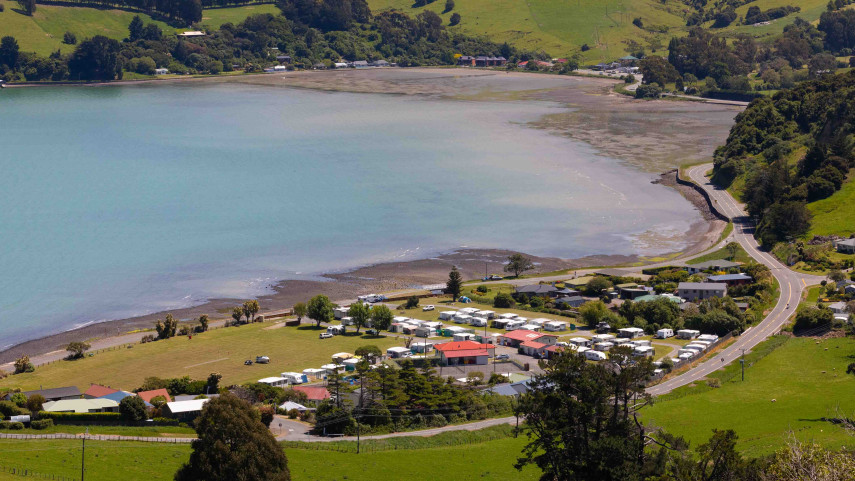
Two options for Duvauchelle wastewater consultation

Share this story
Christchurch City Council will consult the community next month on two options for disposing of treated wastewater from Duvauchelle, it was decided at a Three Waters Infrastructure and Environment Committee meeting today.
The treated wastewater is currently discharged into Akaroa Harbour, but the Council’s consent to do this will expire in 2023. It is a condition of that consent that the Council explores all feasible alternatives to sending treated wastewater to the harbour – a practice that is deeply offensive to Māori.
The Council’s Head of Three Waters, Helen Beaumont, says finding a land-based alternative was crucial.
“Our planning and policy framework under the Resource Management Act is very clear,” she says.
“Discharging treated wastewater to water is not considered sustainable management if there are feasible land-based alternatives.
“These alternatives exist, so we’re not including a new harbour outfall as an option to take forward – we know it would be highly unlikely to get a consent.”
Twelve alternatives were identified and in discussion with those who stood to be most affected, including Ngāi Tahu, they were gradually whittled down to two options.
Both options for consultation involve using treated wastewater to irrigate the Akaroa Golf Course, which is at Duvauchelle. The Council owns the golf course land and it is leased to the Akaroa Golf Club.
“The golf course is really the only area in Duvauchelle big enough to take the amount of treated wastewater we have,” Ms Beaumont says.
In one option the golf course tees, greens and fairways would be spray irrigated in summer, a beneficial reuse of wastewater, with the planted course margins and upslope tree areas being drip irrigated in winter.
This would require a higher level of treatment for the wastewater to bring it up to the standard required for spray irrigation, so would include a major upgrade to the treatment plant.
This option would cost around $13 million and would allow for any future growth in the Duvauchelle area.
Council staff identified this as the preferred option.
In the other option the planted areas, course margins and upslope tree areas of the golf course would be drip irrigated year-round.
This would not be enough area on its own to use up the treated wastewater so another property would need to be bought or leased for irrigation to native trees.
This option would cost around $9 million (plus land). It is less expensive because the wastewater would not require as such a high level of treatment, meaning the treatment plant would need only a minor upgrade, and there would be no need for the pipe and drainage work necessary for the other option. This option may not allow for future growth.
“The team has done a great job identifying and investigating all feasible options, and in keeping the golf club, Ngāi Tahu and other nearby interest groups informed along the way,” Ms Beaumont says. “It has taken about 12 years to get us all to this point, so it’s no small feat.”
The Akaroa Golf Club and Ngāi Tahu support the chosen options for consultation as the best two to consider.
“Some of the options considered involved reducing the golf course to 12 holes, or losing it altogether, so the club is pleased that both these options retain an 18-hole course,” Ms Beaumont says.
“For some of the options there was a risk of wastewater getting into the stream, in overflows during severe weather, so Ngai Tahu is pleased that all the treated wastewater will be put to beneficial reuse on land and it won’t be contaminating waterways.”
Consultation will be held throughout May.
